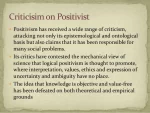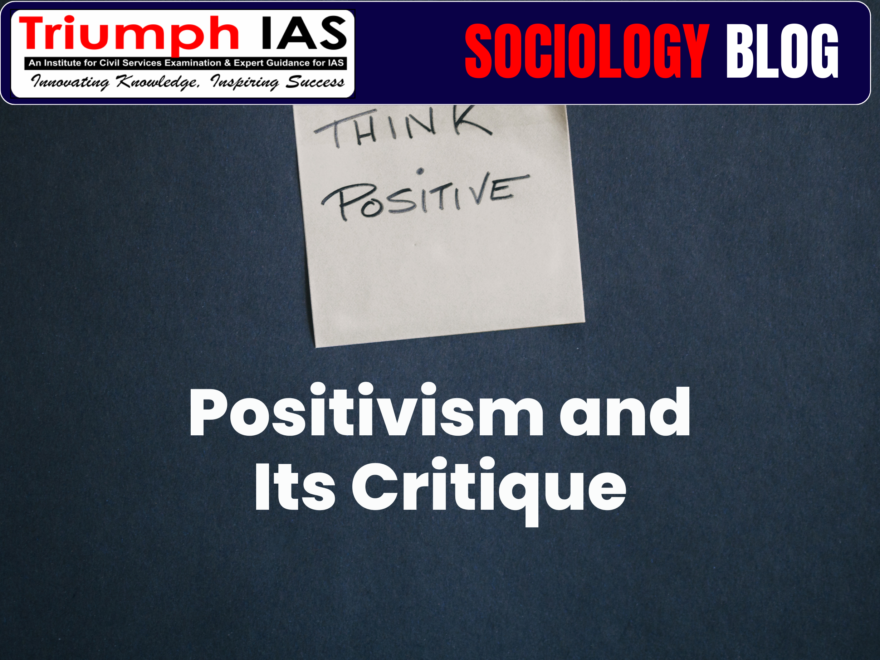
|
When considering the array of 51 optional subjects for the UPSC Mains Examination, Sociology consistently stands out as a top choice. Its inherent appeal lies in its accessibility and intriguing exploration of humanity and society, catering even to students from Science and Commerce backgrounds. With a well-defined UPSC sociology syllabus comprising only 13 units, Sociology can be comprehensively covered within 4 to 5 Month Comprehensive “Foundation to Finale” Classroom Programme, Many of Our Sociology Foundation Course Students have Cleared CSE 2023- Kajal Singh, First Attempt (Age 22) Mahi Sharma, First Mains (Age 23), Anand Sharma First Mains and Many Others. Previously also Many students like IAS Pradeep Singh, IAS Ashish, IPS Bindu Madhav, IPS Aparna Gautam, IPS Shahnaz Illyas got Success in CSE in First Attempt with Sociology Optional.
IAS Medha Anand, has get 310 marks in her optional subject sociology, 156 in paper – 1 & 154 marks in Paper-2 in CSE 2023. Notably, Sociology for UPSC has garnered a reputation as one of the Highest scoring optional subjects in the UPSC Main Examination, with numerous candidates consistently achieving 300+. Its popularity is evident in the fact that a significant proportion of top 100 rankers opt for Sociology as their optional subject, showcasing its high scoring potential, particularly for those not from sociology backgrounds. Moreover, relevance of Sociology Optional Syllabus for UPSC extends beyond the examination hall, enriching understanding across various aspects of life, from social and economic to political and cultural domains. In recent times, Sociology Optional has gained traction, aligning with the evolving trend of the UPSC Mains towards conceptual analysis. Unlike other optional subjects with unpredictable question patterns, Sociology offers stability and predictability, making it an attractive choice. This adaptability, coupled with its concise syllabus and relevance to both academic and social spheres, positions Sociology as the ideal optional subject for engineers as well as optional subject for commerce graduates and optional subject for science graduates seeking success in the Civil Services Examination. For those pursuing Sociology as an optional subject, accessing comprehensive Sociology optional notes and few good Sociology optional books, and previous years’ UPSC sociology optional question papers is pivotal for thorough preparation. Additionally, for aspirants seeking guidance, renowned educator Vikash Ranjan Sir at TRIUMPH IAS coaching institutes in Delhi, offer valuable support and resources. Vikash Ranjan Sir is the Best Sociology Teacher and Triumph IAS is the best sociology coaching in Delhi. If you are away from Old Rajendra Nagar, Delhi, you can still complete Journey of UPSC civil service preparation through online Sociology class The scientific nature of Sociology, coupled with its direct applicability to daily social interactions, renders it a subject that can be comprehended without extensive reference materials, distinguishing it from other optional subjects requiring extensive reading and research.
|
Positivism and Its Critique
Relevant for Civil Services Examination
Sociology Paper-1, Unit-2 [Sociology as Science]
Positivism and Its Critique
-
- Many of the founding fathers of sociology believed that it would be possible to create a science of society based on the same principles and procedures as the natural sciences such as chemistry and biology. This approach is known as positivism.
- Auguste Comte (1798-1857), who is credited with inventing the term sociology and regarded as one of the founders of the discipline, maintained that the application of the methods and assumptions of the natural sciences would produce a ‘positive science of society’.
- He believed that this would reveal that the evolution of society followed ‘invariable laws’. It would show that the behaviour of man was governed by principles of cause and effect which were just as invariable as the behaviour of matter, the subject of the natural sciences.
 The positivist approach makes the following assumptions: The positivist approach makes the following assumptions:
-
- The behaviour of man, like the behaviour of matter, can be objectively measured. Just as the behaviour of matter can be quantified by measures such as weight, temperature and pressure. Methods of “objective measurement” can be devised for human behaviour. Such measurement is essential to explain behaviour.
- For example, in order to explain the reaction of a particular chemical to heat, it is necessary to provide exact measurements of temperature, weight and so on.
- With the aid of such measurements it will be possible to accurately observe the behaviour of matter and produce a statement of cause and effect.
- This statement might read A+B=C where A is a quantity of matter, B a degree of heat and C a volume of gas. Once it has been shown that the matter in question always reacts in the same way under fixed conditions, a theory can be devised to explain its behaviour.
- From a positivist viewpoint such methods and assumptions are applicable to human behaviour. Observations of behaviour based on objective measurement will make it possible to produce statements of cause and effect. Theories may then be devised to explain observed behaviour.
-
- The positivist approach in sociology places particular emphasis on behaviour that can be directly observed. It argues that factors which are not directly observable, such as meanings, feelings and purposes, are not particularly important and can be misleading.
- For example, if the majority of adult members of society enter into marriage and produce children, these facts can be observed and quantified. They therefore form reliable data. However, the range of meanings that members of society give to these activities, their purposes for marriage and procreation are not directly observable. Even if they could be accurately measured, they may well divert attention from the real cause of behaviour. One individual may believe he entered marriage because he was lonely, another because he was in love, a third because it was the ‘thing to do’ and a fourth because he wished to produce offspring. Reliance on this type of data for explanation assumes that individuals know the reasons for marriage. This can obscure the real cause of their behaviour.
- The positivists’ emphasis on observable ‘facts’ is due largely to the belief that human behaviour can be explained in much the same way as the behaviour of matter. Natural scientists do not inquire into the meanings and purposes of matter for the obvious reason of their absence. Atoms and molecules do not act in terms of meanings; they simply react to external stimuli. Thus if heat, an external stimulus, is applied to matter, that matter will react. The job of the natural scientist is to observe, measure, and then explain that reaction. The positivist approach to human social behaviour applies a similar logic. Men react to external stimuli and their behaviour can be explained in terms of this reaction. For example Man and Women enter into marriage and produce children in response to the demands of society. Society requires such behaviour for its survival and its members simply respond to this requirement. The meanings and purposes they attach to this behaviour are largely inconsequential.
- Systems theory in sociology adopts a positivist approach. Once behaviour is seen as a response to some external stimulus, such as economic forces or the requirements of the social system, the methods and assumptions of the natural sciences appear appropriate to the study of man.
- Marxism has often been regarded as a positivist approach since it can be argued that it sees human behaviour as a reaction to the stimulus of the economic infrastructure.
- Functionalism has been viewed in a similar light. The behaviour of members of society an be
seen as a response to the functional prerequisites of the social system.
- The study of society and social phenomena till the middle of the nineteenth century was made mostly on the basis of speculation, logic, theological thinking and rational analysis. August Comte, a French philosopher, described these methods inadequate and insufficient in the study of social life. In 1848, he proposed positive method in the field of social research. He maintained that social phenomena should be studied not through logic or theological principles or metaphysical theories but rather in society itself and in the structure of social relations. For example, he explained poverty in terms of the social forces that dominate society. He described this method of study as scientific. Comte considered scientific method, called positivism, as the most appropriate tool of social research. This new methodology rejected speculation and philosophical approach and focused on gathering of empirical data and became positivistic methodology, using similar methods as employed by natural sciences. By the 1930s, positivism came to flourish in the USA and gradually other countries also followed the trend.
Critique to Positivism:
-
- Comte’s positivism was criticized both from within and outside the positivist domain. Within positivism, a branch called logical positivism was developed in early twentieth century which claimed that science is both logical and also based on observable facts and that the truth of any statement lies in its verification through sensory experience.
- Out side positivism developed schools of thought like symbolic interactionism, phenomenology and ethnomethodology, etc. These schools questioned the positivist methodology and its perception of social reality.
- But Positivism came to be accepted more in the 1950s and 1960s onwards by the academics. Today some writers refer to the emergence of a new stage of research, the post-empiricist research marked by the notion that the scientific method is not the only source of knowledge, truth and validity. Thus, today, sociological methodology is no longer based on positivist methodology as in the past but it has become a body of diverse methods and techniques, all of which are perceived as valid and legitimate in social research.
The End of the Blog : Positivism and Its Critique

|
|
Frequently Asked Questions by
UPSC Sociology Optional Students
How to prepare for the Sociology Optional without coaching?
Understand the syllabus thoroughly: Familiarize yourself with the entire syllabus for both Paper I and Paper II. Download the official UPSC syllabus and use it as your roadmap. You can attend Sociology Orientation Lectures by Vikash Ranjan sir on YouTube
Build a strong foundation: Start with introductory textbooks and NCERT books to grasp core sociological concepts. You can start with Introduction to Sociology books
Choose reliable study materials: Select high-quality textbooks, reference books, and online resources recommended by experts. You can opt for Vikash Ranjan Sir Notes too.
Develop a study schedule: Create a realistic and consistent study schedule that allocates dedicated time for each topic. Stick to it and track your progress.
Take notes effectively: Don’t just passively read. Summarize key points, create mind maps, or use other note-taking techniques to aid understanding and revision.
Practice answer writing: Regularly write answers to past year question papers and model questions. Focus on clarity, structure, and critical thinking. Evaluate your answers for improvement.
Seek guidance: You can take free Mentorship on Sociology Optional preparation by Vikash Ranjan sir. Connect with Vikash Ranjan sir (7303615329) to share strategies, ask questions, and stay motivated.
Can I prepare for Sociology Optional without coaching?
Absolutely! Many aspirants successfully clear the exam through self-study. However coaching can provide structure and guidance, for time bound preparation.
What are the benefits of preparing without coaching?
Cost-effective: Coaching can be expensive, and self-study allows you to manage your resources efficiently.
Flexibility: You can tailor your study plan to your individual needs and pace.
Independence: You develop critical thinking and research skills, valuable assets for your career.
What are the challenges of preparing without coaching?
Discipline and motivation: You need self-discipline to stay on track and motivated without external guidance. Coaching and Teacher keeps you motivated.
Access to resources: You may need to do extra research to find quality study materials and answer-writing practice opportunities. Teacher help you on this respect.
Doubt clearing: You might lack immediate access to someone to address your doubts and questions. Teacher like Vikash Ranjan sir is accessible to his students 24×7 Mo- 7303615329
What additional resources can help me?
Vikash Ranjan Sir’s YouTube channel and website: Offers free Sociology lectures, study materials, and guidance.
Triumph IAS website: Provides past year question papers, model answers, and other helpful resources.
Public libraries and online databases: Utilize these resources for access to relevant books, journals, and academic articles.
Follow us :
 https://www.instagram.com/triumphias
https://www.instagram.com/triumphias
 www.triumphias.com
www.triumphias.com
 https://www.youtube.com/c/TriumphIAS
https://www.youtube.com/c/TriumphIAS
 https://t.me/VikashRanjanSociology
https://t.me/VikashRanjanSociology
















 The positivist approach makes the following assumptions:
The positivist approach makes the following assumptions: